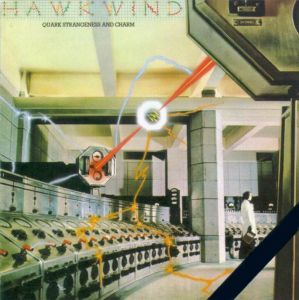
- Format: MP3

Hot on the heels of two decidedly un-Hawkwind-y singles; following in the footsteps, too, of the defiantly transitory Astounding Sounds, Amazing Music album, Quark Strangeness and Charm was the first full flowering of Hawkwind's newly-honed drive towards brittle pop, sharp wit, and crystal-clear intent — attributes that, if they'd ever existed in the past, had been entirely overwhelmed by the sheer grandeur of the space rock rocket blast. Now it was the propulsive riffs and deep space echoes that were held in abeyance, and Quark opened as it meant to go on, with "Spirit of the Age"'s tight keyboards, unobtrusive washes, and the utterly captivating — if totally skewed — story of love across the light years. It is hard to visualise just how shocking the change must have been to loyal fans of the era; how they must have trembled before the electrifying jolt of concise lyricism and accessible melodies. Airplay followed, and the band even made their first mainstream U.K. TV appearance in some five years, performing the new album's title track on Marc Bolan's teatime TV pop show. Robert Calvert wore an aviator's helmet and carried a stuffed falcon on one hand, odd apparel indeed for an ode to Albert Einstein's lack of luck with the ladies. Or maybe not so odd, after all.A handful of songs fed back into the traditional Hawkwind mythos — the post-apocalyptic "Damnation Alley," the near-industrial instrumental "Forge of Vulcan," and the weary, dream-is-over nostalgia of "Days of the Underground." "Hassan I Sabha," an epic of Middle Eastern terrorist rhetoric, even recalled the prosaic realities of the old favorite "Urban Guerilla," although a haunting Arabic refrain and instrumentation catapulted it to a different realm regardless.And so it went on — Hawkwind's most unexpected album to date and, today, one of their most endearingly enduring; charming, strange, and, if not quark, then certainly quirky.